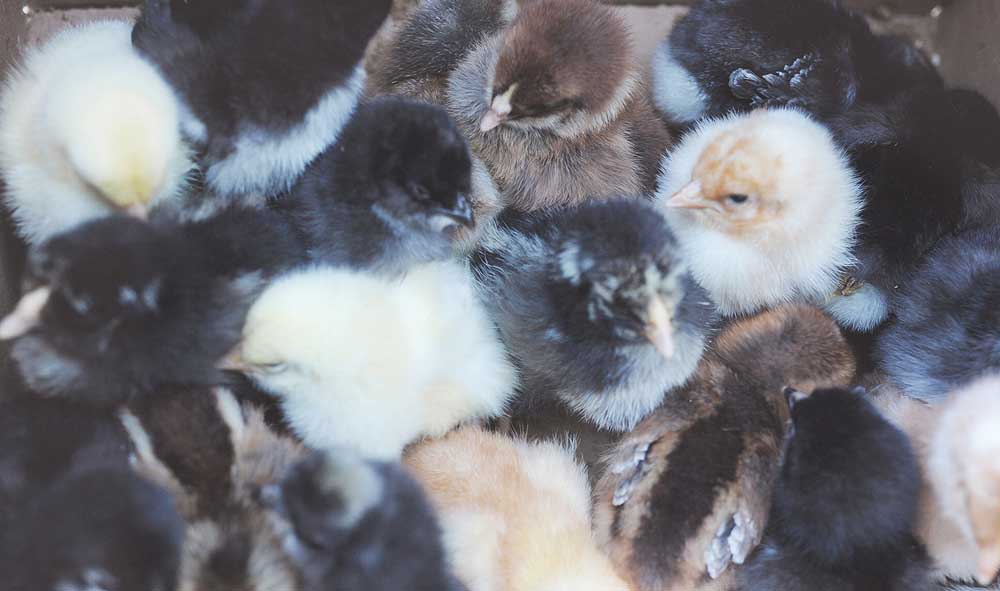Chickenomics: When crisis strikes, Americans buy chicks
Published 8:30 am Wednesday, April 8, 2020

- A shipment of day-old baby chicks from Murray McMurray Hatchery, one of the nation’s oldest and largest hatcheries in Webster City, Iowa.
EUGENE, Ore. — The weeks leading up to Easter are always the busiest for chicken hatcheries, but this spring, chicks are nearly impossible to find as sales spike during the COVID-19 lockdown.
Trending
“Sales went up — a lot,” said Tom Watkins, vice president of Murray McMurray Hatchery in Webster City, Iowa, one of the country’s oldest and largest hatcheries that ships nationwide.
Watkins said chick sales at McMurray are up about 400% from 2019. Most orders are for broilers, or meat birds, said Watkins, with the best egg-laying breeds a close second. The hatchery is sold out for the spring, and people are already placing summer orders.
Across the U.S., people are buying record numbers of chicks. Industry leaders say people fearing food shortages are raising chickens to produce their own meat and eggs in the months to come. Experts say people are also buying chicks to have a backyard activity while they’re quarantined at home.
Trending
“People don’t know what’s going to happen,” said John Monaco, president of the American Poultry Association. “I think there’s a lot of fear and uncertainty about food. But stressed-out people are also buying chicks so there’s something fun to watch running around their backyards.”
He chuckled.
Americans have a habit of raising chickens during times of crisis and confusion. Industry records show chick sales spike during presidential election years and stock market downturns. The last leap in chick sales near this scale happened when the avian influenza killed more than 60 million U.S. chickens between 2014 and 2015, raising the price of eggs.
But the 2020 wave of chicken owners aren’t all newbies. In fact, Watkins said the majority of his buyers this spring are previous customers either returning to raising chickens or buying more than usual.
Across the West, hatcheries and farm supply stores are seeing similar trends and rushing to keep up with orders.
Pete’s Hatchery in Gervais, Ore., which ships nationwide, is experiencing “an unusually high volume of orders.”
Jenks Hatchery in Tangent, Ore., founded in 1910, is sold out until the end of April.
Leslie Pierce, who manages chick sales at Naomi’s Organic Garden Supply in Portland, Ore., said chick sales are up significantly and the waitlist grows every day.
Jen Maxwell-Muir, a customer of Naomi’s Organic Garden Supply, has kept backyard chickens for more than 20 years.
“Right now, we’re getting two eggs a day,” she said. “When you’re limiting your trips to the grocery store, they’re like gold.”
Sam Bugarsky, CEO of Wilco, a farm supply cooperative, said this spring’s in-store “chick days,” or clinics on raising chicks, had record numbers of participants in mid-March just before the lockdown. He said sales of meat bird chicks such as Cornish crosses are up 12% at Wilco stores, with future egg-layers close behind.
“Murray McMurray founded our hatchery in 1917,” said Watkins. “He saw world wars and the Great Depression, and he used to say, ‘In times of hardship, people turn to chickens.’ I think that’s still true.”









